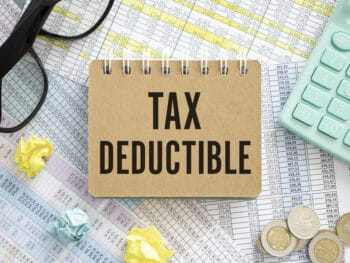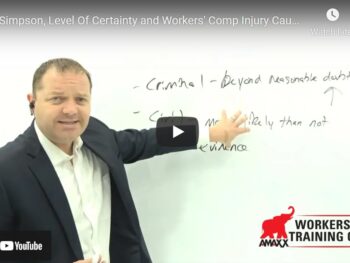In Iowa Case Burden of Proof is Upon Injured Worker to Show that Greeting a Co-worker By "Wiggling His Butt" Was Not Disqualifying Horseplay
Here’s what Tom Robinson, J.D., writer for Lexis Nexis Workers Comp Law Center reports.
Here's What Happened
Vegors worked as a machine inspector for the water district, a company that installed rural water lines. He was injured at work when a pickup truck being driven by Byrd, a co-employee, struck him. The evidence indicated that at the time of injury Vegors had his hands full and gestured a greeting by "wiggling his butt" at Byrd. Byrd intended to "bump" Vegors with the mirror of the truck, but instead, hit him with the truck bed. Employees later testified that on a number of other occasions the two had gestured to each other in unusual ways when their hands were full. On one occasion, for example, one of the men had "waved" the boom of a track hoe at the other.
Vegors sought workers' compensation and the water district contested the claim, arguing that Vegors was barred from recovery because his horseplay removed the incident from the employment. The water district also pled the affirmative defense of willful injury. The deputy commission held that the water district had the burden of proving the defense of horseplay and found that Vegors intended to shake his hind end as a means of communication and not to initiate, instigate, or participate in the horseplay that led to the injury. Recovery of workers' compensation benefits was not, therefore, barred. The commissioner affirmed but, upon further appeal, the district court reversed, holding that Vegors was barred from recovery. Vegors then appealed. (WCxKit)
Here's What The Court Decided
In Xenia Rural Water Dist. v. Vegors, 2010 Iowa Sup. LEXIS 83 (July 23, 2010), the Supreme Court of Iowa reiterated the rule that the injured worker had the burden of showing that the injury arose out of and in the course of the employment. It indicated further that when an employer contended that a claimant's injury was caused by horseplay, and not the employment, the burden of proof did not shift away from the claimant; he or she retained the burden of showing the claim was compensable.
Quoting Larson's Workers' Compensation Law, § 23.07[3], the supreme court observed, however, that not all instances of horseplay barred recovery. Only where it was determined that the claimant had substantially deviated from the line of duty so that his or her actions were foreign to the (WCxKit) employer's work should recovery be denied. The court concluded, in relevant part, that in the instant case the deputy commission had incorrectly applied the burden of proof. The matter was, therefore, remanded for appropriate findings. See generally Larson's Workers' Compensation Law, §§ 51.01, 51.02, 51.03.
Tom Robinson, J.D. is the primary upkeep writer for Larson's Workers' Compensation Law (LexisNexis) and Larson's Workers' Compensation, Desk Edition (LexisNexis). He is a contributing writer for California Compensation Cases (LexisNexis) and Benefits Review Board – Longshore Reporter(LexisNexis), and is a contributing author to New York Workers' Compensation Handbook(LexisNexis). Robinson is an authority in the area of workers' compensation and we are happy to have him as a Guest Contributor to Workers' Comp Kit Blog. Tom can be reached at: compwriter@gmail.com. http://law.lexisnexis.com/practiceareas/Workers-Compensation
Return to Work Calculator: http://www.LowerWC.com/transitional-duty-cost-calculator.php
Do not use this information without independent verification. All state laws vary. You should consult with your insurance broker or agent about workers' comp issues.
©2010 Amaxx Risk Solutions, Inc. All rights reserved under International Copyright Law. If you would like permission to reprint this material, contact Info@WorkersCompKit.com






















